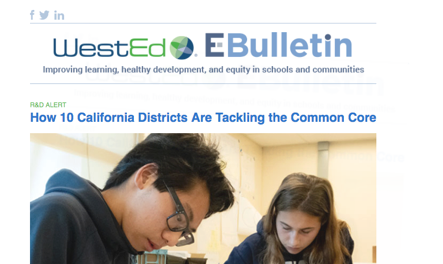Creating Conditions for Community Schools to Serve the Whole Person, Whole Families, and Whole Communities
Equitable, sustainable whole-person outcomes are achieved when young people, families, educators, and communities work in partnership with schools, districts, and states to improve the way children and youth are served.
Cross-sector, community-led initiatives that serve the whole person are at the heart of a promising community schools strategy and are foundational to better learning conditions and outcomes. Our work together will help you shape successful partnerships to create learning conditions designed to prioritize agency, self-determination, and liberation.
We know that community schools should be led by the communities they serve. Our role is to facilitate your implementation efforts through creation of high-quality tools and resources, communities of practice, and content-specific knowledge and capacity building. Our expertise includes professional learning, coaching, technical assistance, and research in the following areas: school climate and culture; equitable, safe, and supportive learning environments; restorative practices; social and emotional learning; and comprehensive school mental health systems.
We offer the following services to support the development and implementation of community schools:
Community Schools Planning, Development, and Continuous Improvement
Schools and districts can strengthen community schools through intentional planning, implementation, and continuous improvement. We support school and district communities to co-create and continuously improve community schools through strengths-based inquiry, collective visioning, participatory planning, program development, school governance design, and alignment and coherence of child- and youth-serving systems.
Youth, Family, and Community Partnerships
Youth, family, and community partnerships contribute to better learning conditions and outcomes for students and are at the heart of a community school’s strategy. We help schools and districts create the conditions for systemic youth and family engagement, build family-school partnerships for student learning and development, grow and align community-based partnerships to support the whole person, and design and implement community-led systems change initiatives.
Regional and State Community School Systems
Community school support systems can include resources, guidance, technical assistance, peer learning networks, data and accountability structures, and other tools that contribute to thriving community schools. We work with regional and state agencies to co-create support systems for community school development, implementation, and continuous improvement.
Alignment and Coherence of Community School Initiatives
Community schools employ a wide variety of initiatives and programs designed to create responsive, safe, supportive, equitable conditions for learning and development. We help local, regional, and state systems identify a shared vision for equitable whole-person outcomes around which these efforts can be united, inventory existing community school initiatives, identify opportunities for alignment and coherence, and adapt the implementation of these initiatives to achieve greater equity.
Community schools must also have systems in place to uphold a full continuum of supports and intervention that include active mental health and wellness promotion so that students can learn, thrive, and be ready for life beyond graduation. Multi-Tiered Systems of Support (MTSS) provide a comprehensive, cohesive organizing system for education, behavioral health, and other youth serving organizations to deliver a continuum of supports uniquely matched to the strengths and needs of a school community. WestEd provides coaching, facilitation, and strategic planning services for local, regional, and state educational agencies to integrate services into a cohesive, multi-tiered behavioral and mental health system with children, youth, and families at the center.
Community School Leadership Development
All members of a school and the broader community – young people, families, educators, and community partners – contribute to making a community school possible, including through shared governance and planning, community partnerships, coordination of student and family services and supports, and continuous improvement.
We support schools and districts to develop and strengthen collaborative leadership approaches through networked learning for community school leadership teams, and through peer learning for community school leaders, including community school managers, youth and family engagement coordinators, school-based health coordinators, after school program managers, educators, and administrators.
Expanded Learning Program Supports
Expanded learning opportunities for children and youth that extend beyond the conventional school day are a core component of community schools. We help strengthen expanded learning programs through professional learning for out of school time providers, development of tools to measure expanded learning goals, and evaluation of before, after, and summer school programs.
Community Schools Program Evaluation
Evaluation is a crucial mechanism to understand the logic underlying community school programs and initiatives, the extent to which they are implemented as intended, and whether desired outcomes are achieved. We help design program evaluations based on the specific nuances of your community school with the goal of informing continuous improvement efforts and building knowledge for shared decision making.


